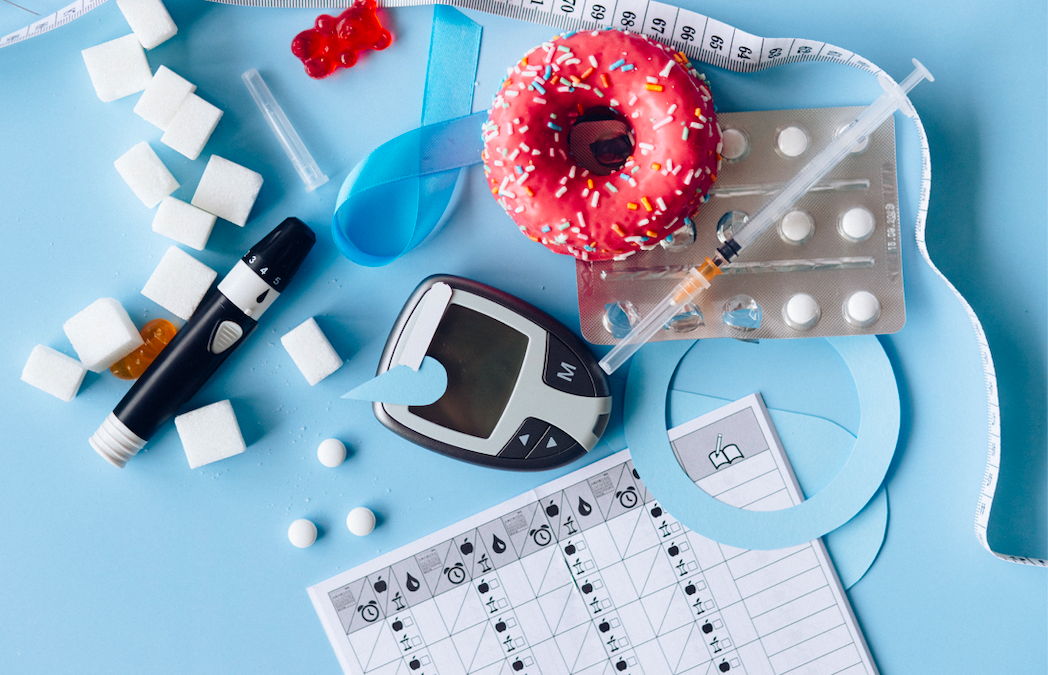Whether it’s you or a loved one, receiving that first diagnosis can seem overwhelming, but rest assured, diabetes is not a debilitating disease. With proper care and management, along with some potential lifestyle changes, life with diabetes will continue.
Regardless of if you are newly diagnosed or are just doing a bit of research, here are a few things you should know about diabetes.
Diabetes is a chronic health condition.
Diabetes is a chronic health condition in which a person’s pancreas develops an inability to properly or completely produce the hormone insulin.
In a person without diabetes, the pancreas will produce insulin as needed to help the body efficiently regulate blood sugar levels. When the pancreas develops problems, it can result in insufficient production of insulin. This stops the cells from turning glucose in the blood into energy, resulting in high blood sugar levels, leading to some severe complications.
There are two types of diabetes.
Though they fall under the same umbrella, those living with diabetes are classified under one of two kinds: Type 1 and Type 2. Understanding which type of diabetes you have is key to forming the best management plan for you.
One way to tell the difference between the types is by recognizing the degree to which the pancreas is still able to produce insulin.
Type 2 diabetic pancreases still produce insulin.
With Type 2 diabetes, the pancreas remains functional but cannot sufficiently produce the body’s insulin. The organ either does not make enough insulin, or it is unable to use the insulin it does produce properly.
Type 2 diabetes is a progressive disease in which an individual’s body develops a resistance to the insulin that they do produce, causing the pancreas to increase production of the hormone for a demand it can’t keep up with.
This insufficient supply of insulin leaves the body’s cells unable to use the glucose for the energy the way it needs, leaving it to remain present in the blood and resulting in higher blood sugar levels.
People with Type 1 diabetes are insulin-dependent.
In Type 1 diabetes, the pancreas is no longer producing insulin. This leaves cells unable to convert the glucose in the blood to get the energy they need.
This form of diabetes comes about as a result of the body’s immune system turning on the insulin-producing cells found in the pancreas. Over time, these damaged cells are worn down, restricting the body’s ability to produce its own insulin.
Because the pancreas has completely stopped producing insulin in this case, people with Type 1 diabetes must compensate for its absence by manually introducing the insulin into the body. This can be done with either insulin injections or the use of an insulin pump.
The perfect diabetic diet does not exist.
In a five-year study conducted by a panel of scientists, doctors, diabetic educators, and dieticians, results showed no one diet is best suited for all people with diabetes.
Just like your personality, your body’s reaction to food is unique to you. As a newly diagnosed diabetic, you will need to do some homework to determine how different foods affect your blood sugars.
The American Diabetes Association (ADA) recommends cutting back on added sugars and refined grains while including lots of non-starchy vegetables as an ideal choice for a diabetic diet.
A diabetic nutritionist can help you to analyze your glucose patterns and discover the best diet for you. The ADA’s Diabetes Plate Method can also be helpful for those looking for guidance.
Exercise is your friend!
Developing a dedicated exercise routine can sometimes seem like an impossible task. Still, adopting a healthy diet and taking your medications, regular exercise is an essential tool for properly managing your diabetes.
Physical activity helps increase your cells’ sensitivity to insulin, making it work more effectively. It also helps with weight loss which can improve blood sugar levels in both Type 1 and Type 2 diabetics.
However, it is also important to remember that while exercise is a great way to help manage diabetes, excessive exercise can also cause drops in blood sugar levels. It is important to pay attention to your body during these activities so that you can correct any fluctuations at the moment they happen.
Mismanaged diabetes can affect other parts of your body.
Diabetes may be caused by an issue with the pancreas, but it’s important to know the far-reaching effects that can result from poor control over this disease.
Over time, long-term repercussions can be caused due to frequent and uncontrolled high blood sugar levels. These include damage to the body’s various organs: diabetic retinopathy in the eyes, problems with the liver and damage to the nerves and the vascular systems, which can lead to an increased risk of heart attack and stroke.
Due to the possibility of major health complications such as these, regular appointments and check-ins with your endocrinologist (diabetic specialist) and health care provider are essential.
You are not alone!
Though your new situation may seem impossible at first, it’s important to remember that you are not in this alone. According to the CDC, 34.2 million Americans are living with diabetes and another 88 million American adults are considered prediabetic.
There are countless resources available to help you learn more about this disease and how to manage it. There are also communities and organizations such as the ADA with a wealth of information to help you navigate life with diabetes.
Receiving Medical Care at Fetter Health Care Network
If you are in need of affordable medical care in the Lowcountry, look no further than Fetter Health Care Network. Fetter is the oldest federally qualified health center in the state, providing quality health and dental services for over 53 years.
Along with our other services, Fetter offers an array of specialized health and wellness programs designed specifically for patients with diabetes, high blood pressure, hypertension and more to help you live a happy, healthy life.
At Fetter, we offer medical services to all patients, regardless of their insurance status or ability to pay. With various clinics throughout Berkeley, Charleston, Colleton and Dorchester Counties, residents from almost any area of the Lowcountry can reach a Fetter clinic for medical care. For more information, request an appointment today.

